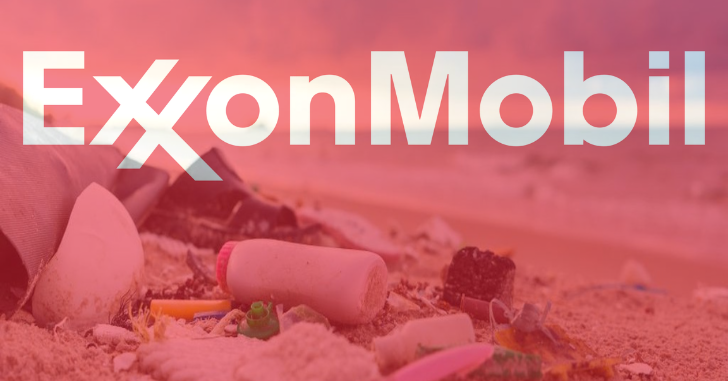In a groundbreaking move, the state of California has launched a multibillion-dollar lawsuit against ExxonMobil, accusing the oil giant of engaging in a deceptive campaign to mislead the public about the recyclability of plastic. California’s Attorney General Rob Bonta has filed the lawsuit, claiming that ExxonMobil and other fossil fuel companies knowingly promoted plastic recycling as a viable solution to the growing environmental crisis, all while being fully aware that most plastic ends up in landfills or pollutes the environment.
The Alleged Deception: A Decades-Long Strategy
At the core of the lawsuit is the allegation that ExxonMobil and the broader plastics industry perpetuated the myth that plastic could be endlessly recycled. The lawsuit suggests that this narrative began in the 1980s, as plastic pollution became a public concern. ExxonMobil and other companies, in response, launched campaigns touting the benefits of recycling, all the while knowing that the infrastructure for recycling plastics was insufficient and ineffective.
In reality, only a small fraction of plastics is actually recycled. Most plastics either end up in landfills or pollute waterways, where they break down into harmful microplastics. These microplastics have been found in oceans, food chains, and even human bodies, causing widespread concern about their long-term environmental and health impacts.
California’s Case Against Exxon
California’s lawsuit accuses Exxon of not just false advertising but actively deceiving the public to protect its profit margins. The state claims that ExxonMobil’s advertising campaigns and public relations efforts were specifically designed to obscure the truth about plastic waste, creating the illusion that consumers could offset the environmental damage of plastic use by recycling.
“ExxonMobil knew exactly what they were doing,” said Attorney General Bonta. “They promoted plastic as a sustainable, recyclable material when they knew that less than 10% of it would ever be recycled. This isn’t just misleading—it’s outright fraud.”
The lawsuit further alleges that ExxonMobil’s actions violated California’s consumer protection and environmental laws, exposing the company to potentially billions of dollars in damages. California seeks compensation for the environmental damage caused by plastic waste, as well as penalties for violating the state’s Unfair Competition Law.
The Broader Implications
This lawsuit comes at a critical time, as concerns about the global plastic pollution crisis have reached new heights. The lawsuit highlights the broader issue of corporate accountability in the fight against climate change and environmental degradation. If successful, California’s case against Exxon could set a precedent for other states and countries to follow, increasing legal pressure on corporations that contribute to environmental harm.
Moreover, this case shines a light on the fossil fuel industry’s role in the plastics boom. As demand for oil and gas has stagnated, fossil fuel companies have turned to plastics as a growth market. The International Energy Agency predicts that by 2050, nearly half of the growth in oil demand will come from plastics. This lawsuit, however, could disrupt that trajectory by holding companies like Exxon accountable for the environmental consequences of their actions.
ExxonMobil’s Response
In response to the lawsuit, ExxonMobil has denied the allegations, stating that the company is committed to addressing the global plastic waste issue. In a statement, a company spokesperson said, “ExxonMobil is actively working on advancing recycling technologies and supports efforts to reduce plastic waste. We believe that this lawsuit is without merit and will defend ourselves vigorously.”
The company has pointed to its investments in new recycling technologies, such as advanced chemical recycling, which it claims could significantly increase the amount of plastic that can be recycled. However, environmental groups have criticized these efforts, calling them insufficient and too slow to make a meaningful impact on the global plastic crisis.
The Road Ahead
As the lawsuit moves through the courts, its outcome could have far-reaching consequences not only for ExxonMobil but for the entire plastics industry. Should California prevail, it could spark a wave of similar lawsuits from other states or even lead to federal action against plastic producers. Additionally, it could force Exxon and other companies to invest more heavily in reducing plastic production and developing more sustainable alternatives.
The case also raises critical questions about corporate transparency and environmental responsibility. For decades, consumers have been told that recycling is the solution to the plastic waste problem. However, if the allegations against Exxon are true, the public has been misled about the extent of the problem—and the time to act is now.
Conclusion
The lawsuit against ExxonMobil represents a critical turning point in the fight against plastic pollution. As the legal battle unfolds, it will be a key test of whether major corporations can be held accountable for their role in perpetuating environmental crises. Regardless of the outcome, the case has already exposed the deep flaws in the recycling system and the urgent need for a comprehensive solution to the plastic waste problem.





